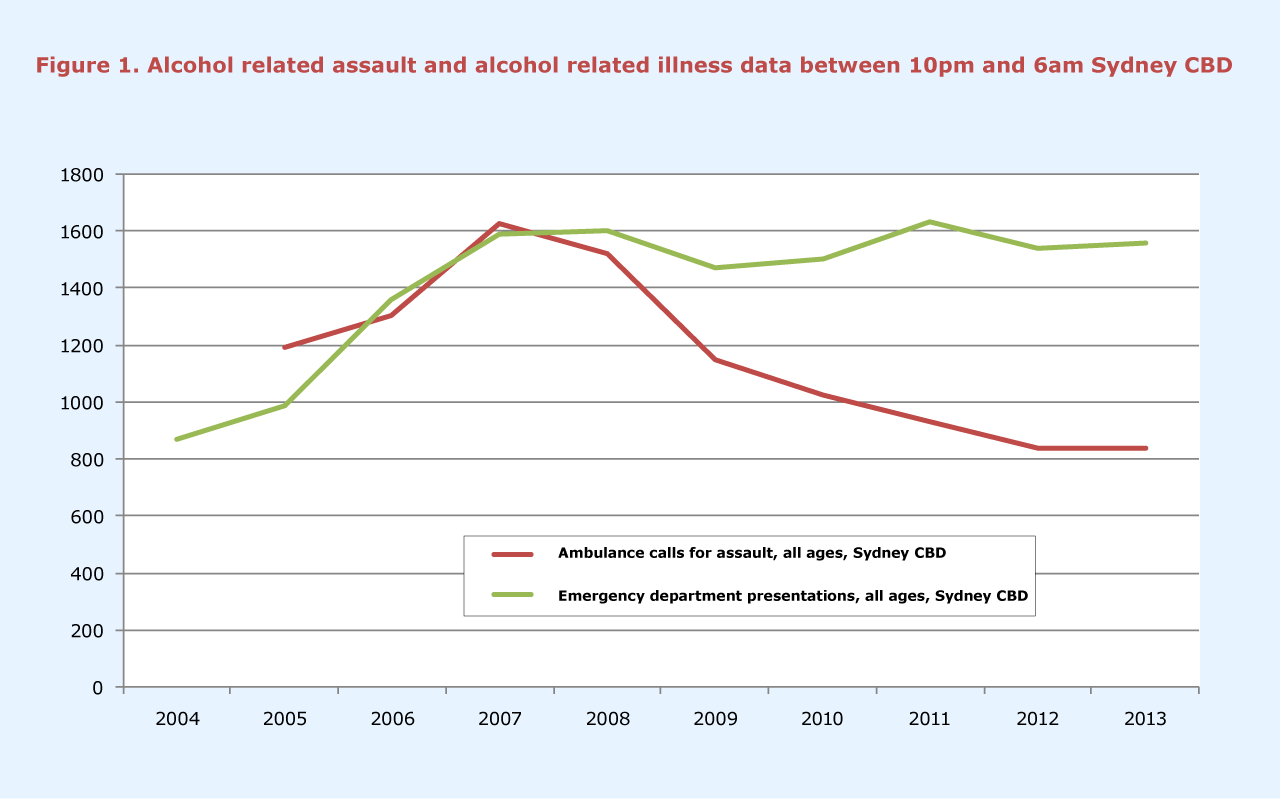Summary
Aim
To assess the role of administrative police and health databases in monitoring trends in, and epidemiology of, alcohol-related violence and acute alcohol illness associated with the night time economy in the Sydney central business district (CBD) “Entertainment Precinct”, prior to the introduction of 2014 government reforms addressing "alcohol-fuelled violence".
Method
We examined annual trends in police-recorded incidents of grievous bodily harm, ambulance Triple Zero (000) calls for assault, and acute alcohol illness emergency department presentations that occurred between 10 p.m. and 6 a.m. over a 10-year period (2004–2013). Trends were examined among persons of all ages and young adults (18 to 29 year olds) in the CBD. The rest of metropolitan Sydney provided a comparison area to evaluate whether trends were CBD-specific.
Results
Among persons of all ages, there were 913 police-recorded incidents of grievous bodily harm, 10,427 ambulance calls for assault and 14,106 emergency department presentations for acute alcohol illness in the CBD over the 10-year period. Young adults accounted for between 62 per cent and 78 per cent of assault incidents and 58 per cent of alcohol emergency department presentations. Between 2004 and 2008, the annual number of assaults and acute alcohol illness increased two-fold. Alcohol illness emergency department presentation trends subsequently stabilised, while assaults in 2013 were at the lowest levels in 10 years. Similar trends were observed in the rest of metropolitan Sydney.
Conclusion
The majority of alcohol-related assaults and emergency department presentations involved young adults. Ambulance and police administrative data sources provided a consistent picture of a recent decline in late-night assault trends. Alcohol-related emergency department presentation trends suggested other alcohol harms may be continuing at relatively high levels both in the CBD and in metropolitan Sydney. While violence appears to be declining in the CBD and across Sydney, continuing alcohol harm remains to be addressed.
